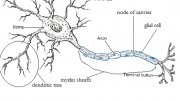
Following a BA or BSc degree in psychology, some students opt not to pursue a career in psychology while others do. For the former, many of the abilities and skills that one obtained as a psychology student can be used in careers that are not directly related to psychology. For the latter, there are three general paths a student can pursue.
1. Psychology as a career: A bachelor's degree (B.A. or B.Sc.) is the first step on the road to graduate-level training to become a psychologist. To call yourself a psychologist, you must complete at least a Master's degree and normally a PhD in psychology. This applies both to research careers (e.g., university professor) and becoming a practising psychologist. There are several areas of specialization for those who wish to pursue post-graduate training at the master's or doctoral level; within each area, one may choose sub-specialties in which to teach, conduct research, be a practitioner, or some combination of these three activities.
2. Careers open to Graduates with a B.A. or a B.Sc. and in which psychology is relevant: Both the skills and knowledge acquired through the baccalaureate programs provide preparation for a variety of career fields, including but not limited to personnel, labour relations, social services, technical writing, corrections, probation, parole, marketing and public relations, gerontology, health services, fundraising and mental health. A bachelor's degree in psychology often serves as a valuable preliminary step to other professional careers such as medicine, law, management, social work, and education.
3. Careers built on psychology skills and knowledge: Psychology graduates also sometimes pursue careers in, for example, law, journalism and business. This often requires further study.
Possible Employment and Careers
Presented below are many of the careers upon which psychology majors can embark. At first glance, some of these careers may appear unrelated to the discipline of psychology; however, a closer look highlights the importance of the "core competencies" and skills that psychology majors acquire during their studies.
|
Addictions counsellor |
Administration |
|
Career/employment counsellor |
|
|
Case worker |
Child care worker |
|
Child welfare worker |
Community worker |
|
Correctional officer |
Counsellor |
|
Cultural diversity consultant |
Customs or immigration agent |
|
Day care worker, supervisor |
Educational counsellor |
|
Entrepreneur |
Fund-raiser or development officer |
|
Gerontology |
Government researcher |
|
Health services |
Hospice coordinator |
|
Human resources |
Immigration officer |
|
Labour relations specialist |
Manager |
|
Market research analyst |
Marketing |
|
Mental health worker |
Motivational researcher |
|
Personnel |
Population studies researcher |
|
Probation or parole officer |
Professional consultant |
|
Program coordinator |
Psychiatric assistant or aide |
Source: www.cpa.ca
You might also like:



|
Psychopaths: Serial killers On the rampage. True Crimes of Depraved Minds. Deadly Serial Killers: Serial Killers. (Serial Killers; They Walk Among Us. Serial Killers on the Rampage. Book 2) eBooks () |















Psychoanalyst, Clinical Psychologist, Counseling Psychologist, Research Psychologist, Applied Psychologist, Child Psychologist, Therapist, Marriage Counselor, School Counselor.
Some careers in psychology are psychologists, researcher, psychology teacher in high schools or colleges. Be a psychologist at schools, most schools have a school psychologists to help students. Researcher, would be a person who researches a certain area of psychology because there are many things still unknown about psychology. Many schools have psychology as a class, so a person could be a psychology teacher.